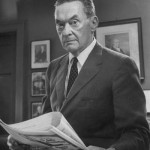The Public Health Option and Lessons from the San Francisco Experiment
As I prepare to provide brief commentary on various legislative provisions for a CCH publication that will explain health care reform legislation once it is finalized, I could not help but take notice of this important op-ed. It is by a trio of labor and health economists that ran in the New York Times this weekend on the much discussed public option and its relations to employers being mandated through a pay or play system to provide health insurance for their employees.
Here’s a taste:
TWO burning questions are at the center of America’s health care debate. First, should employers be required to pay for their employees’ health insurance? And second, should there be a “public option” that competes with private insurance?
Answers might be found in San Francisco, where ambitious health care legislation went into effect early last year. San Francisco and Massachusetts now offer the only near-universal health care programs in the United States . . . .
[W]e have seen how concern over employer costs can be a sticking point in the health care debate, even in the absence of persuasive evidence that increased costs would seriously harm businesses. San Francisco’s example should put some of those fears to rest. Many businesses there had to raise their health spending substantially to meet the new requirements, but so far the plan has not hurt jobs . . . .
So how have employers adjusted to the higher costs, if not by cutting jobs? More than 25 percent of restaurants, for example, have instituted a “surcharge” — about 4 percent of the bill for most establishments — to pay for the additional costs. Local service businesses can add this surcharge (or raise prices) without risking their competitive position, since their competitors will be required to take similar measures. Furthermore, some of the costs may be passed on to employees in the form of smaller pay raises, which could help ward off the possibility of job losses. Over the longer term, if more widespread coverage allows people to choose jobs based on their skills and not out of fear of losing health insurance from one specific employer, increased productivity will help pay for some of the costs of the mandate.
In case you think this is all a bunch of liberal, Democratic mishigosh, one of the authors of this op-ed happens to be non-other than William Dow, a senior economist who worked for President George W. Bush’s Council of Economic Advisers.
In other words, increasing evidence is out there that health care reform with a public option and an employer pay or play mandate might be just what our system needs to rein in health care costs while at the same time providing health insurance to a much larger segment of American society.
[Cross-posted on Workplace Prof Blog]

 It is difficult to watch the video of the various “town hall meetings” and constituent listening sessions that have taken place during the current congressional recess. The overwhelming feeling engendered by these scenes of screaming faces is a feeling of despair for the future of democracy itself. After all, town hall meetings hold an important place in our nation’s history as a symbol of the general public’s continuing participation in their own democratic government.
It is difficult to watch the video of the various “town hall meetings” and constituent listening sessions that have taken place during the current congressional recess. The overwhelming feeling engendered by these scenes of screaming faces is a feeling of despair for the future of democracy itself. After all, town hall meetings hold an important place in our nation’s history as a symbol of the general public’s continuing participation in their own democratic government. Urine testing has become a familiar part of the sports landscape, but less so blood testing. However, the development of a blood test for human growth hormone has the potential to make blood testing of athletes more common.
Urine testing has become a familiar part of the sports landscape, but less so blood testing. However, the development of a blood test for human growth hormone has the potential to make blood testing of athletes more common.